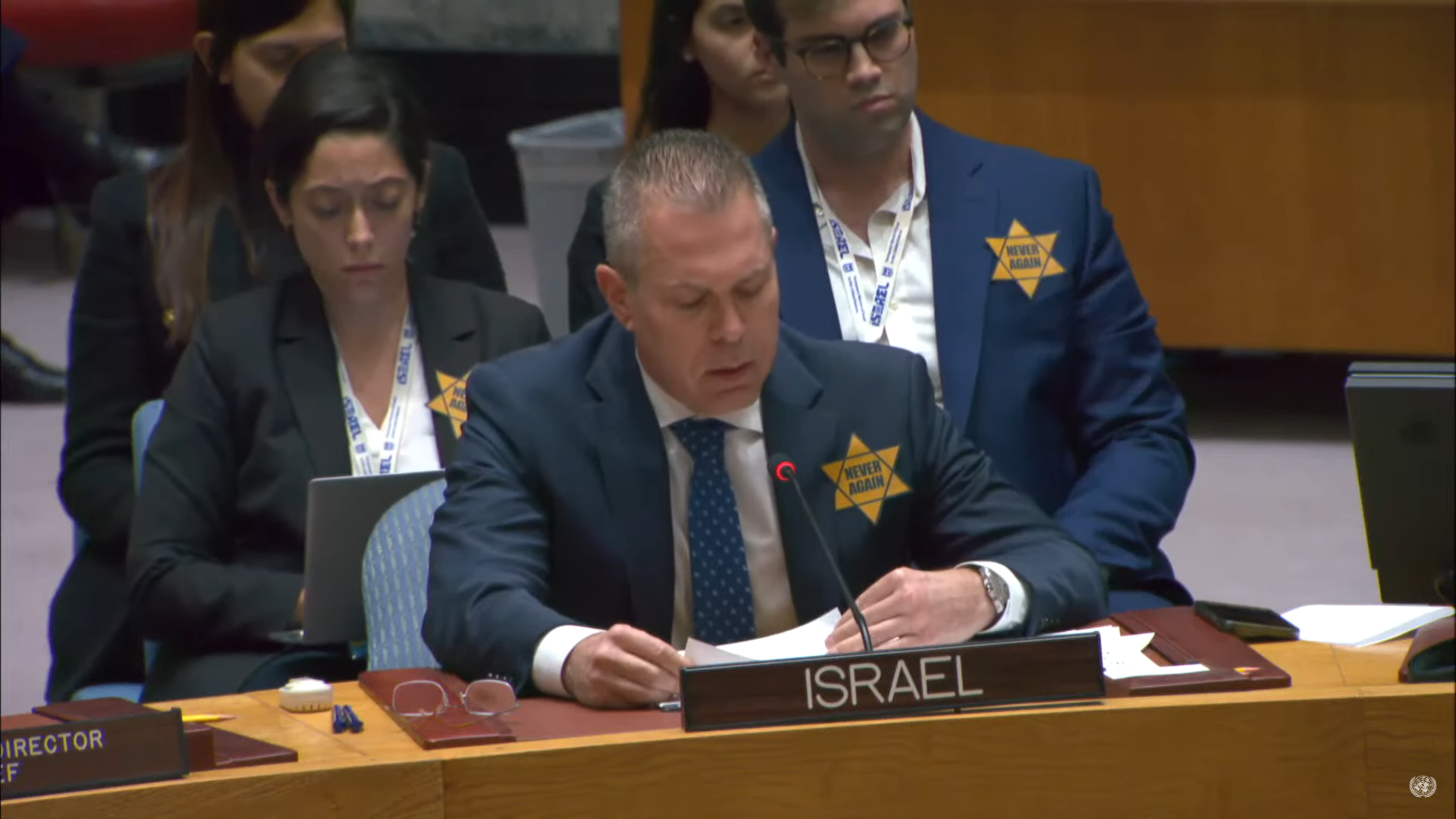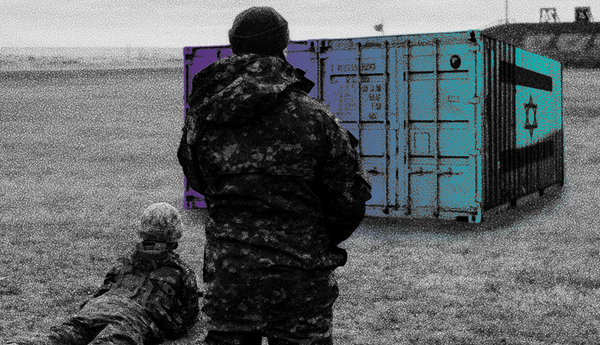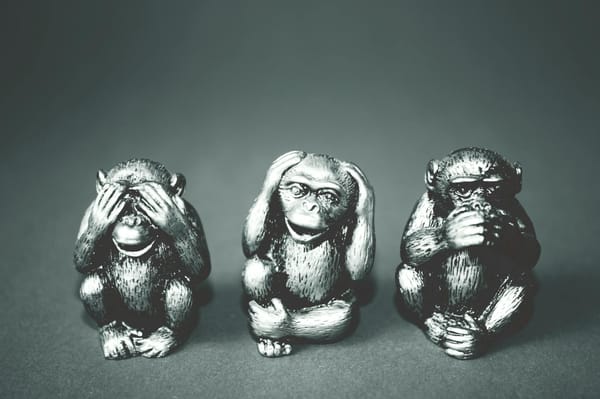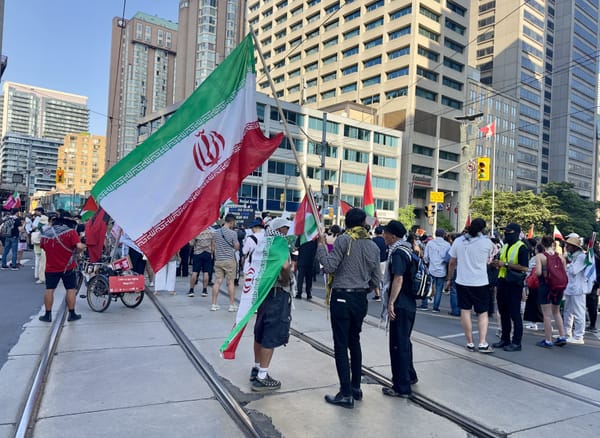Over the past decade, I’ve written extensively on the pro-Israel bias in Canadian media. This article will focus on something different, but which helps shape the bias: Jewish exceptionalism.
You can find articles about how various -isms and -phobias impact Canadian media: homophobia, Islamophobia, transphobia, xenophobia, classism, racism, sexism, etc. And yet, there’s little out there on Jewish exceptionalism, which is increasingly being analyzed by commentators outside of the country.
Jewish exceptionalism is the belief that Jewish people as a demographic are eternally and ontologically oppressed, no matter the circumstances, and as such should be treated differently. Jewish exceptionalists refer to antisemitism as the “oldest hatred,” and treat it as though it’s the only one powerful enough to make its targets a permanently marginalized group.
This incorrect analysis fails to take into account the status of Jewish people in Canada and elsewhere over at least the past few decades. While Jews remain the targets of alleged hate crimes (though reports on the issue vastly overstate the reality), they face no systemic discrimination and generally fare exceptionally well in Canada and elsewhere on all other markers used to measure oppression. As a point of comparison, few that anyone would take seriously argue that dozens of churches being burned down in acts of arson since 2021 make Christians an oppressed group in Canada.
This article will illustrate how Jewish exceptionalist sentiment underlies much of the discussion in Canadian media involving Jewish Zionists by outlining five tropes, providing examples of them in mainstream publications and explaining how they smuggle in the idea that Jewish people are exceptional and should be treated as such. The tropes are: ‘Jewish-owned business’; ‘blood libel’; ‘Jewish state’; ‘Jewish neighbourhood’; ‘list of Jews.’
While this article could have been written at any point in recent years, I’ve done so now because Israel, the state claiming to represent Jews and which enjoys widespread support from them according to polling, is committing a genocide in the name of Jewish supremacy, the most explicit form of Jewish exceptionalism. Those who defend Israel and seek to undermine the pro-Palestine movement also utilize arguments that rely on Jewish exceptionalism to do so.
As such, these tropes deserve to be identified and refuted because they strengthen narratives defending the worst atrocity of our time: Israel’s genocide in Gaza.
‘Jewish-Owned Business’
The term “Jewish-owned business” appeared in Canadian newspapers 70 times between Oct. 7, 2023, and Aug. 31, 2025, according to the Canadian Newsstream database. This represents about 78 per cent of the times it had ever been used in Canadian newspapers up to that point.
Since October 7, the term has typically been used in reference to businesses that happen to be owned by Jewish people being targeted by pro-Palestine protesters. Those using the term typically employ the following logic in their articles: 1) the owner of a business is Jewish; 2) their business is being protested or boycotted in some form; 3) the action is happening because the owner is Jewish; 4) therefore, the protests are morally wrong and potentially illegal, and should be condemned.
As an example, a March 2024 editorial in The Globe and Mail erroneously stated as a fact that, “An Indigo bookstore in Toronto was vandalized, because the chain’s founder is Jewish,” and then added, “A democratic country cannot let this stand. And yet it is happening right before our eyes.”
There are genuine historical examples of Jewish businesses being protested or boycotted because of their owners’ religious backgrounds, such as in Nazi Germany, and they have justifiably received widespread condemnation. And yet, despite the explicit comparisons to these examples that commentators will make to generate an emotional response and demonize pro-Palestine protesters, the most high-profile instances of this sort of rhetoric being used in Canadian media have been cases where the owner’s religious identity had nothing to do with the protests and/or boycotts of their business.
In the case of Indigo, as I wrote in October 2024, “the store was targeted because Indigo CEO Heather Reisman is behind the HESEG Foundation, which offers a range of perks to so-called ‘lone soldiers’ who travel to Israel from abroad to join the army.” And as I wrote in October 2023, Café Landwer, an Israeli chain of restaurants, has been boycotted because its co-founder and CEO served in the Israeli military and it opened a location in Jerusalem atop the remains of a Muslim cemetery, among other reasons.
If you revisit the logic I outlined above, and remove the claim the business is being targeted because its owner is Jewish (which is clearly not the case with Indigo and Café Landwer), it breaks down to: the owner is Jewish and therefore their business should not be targeted. The implication here is that it’s OK to target businesses owned by other demographic groups, but not ones owned by Jewish people.
There are cases in Canadian media where this point is made explicitly.
In a March 2024 Toronto Star article, columnist Andrew Phillips writes, “It should have been obvious that an event featuring two such controversial leaders would be targeted by protesters, especially since pro-Palestinian demonstrators have been taking every opportunity to go into the streets and make their views known. And in this case it was a legitimate time and place to protest. They weren’t demonstrating outside a Jewish-owned business, a Jewish community centre, Mount Sinai Hospital or a synagogue in Thornhill, as happened on Sunday. All those should be out of bounds for protests about Israel’s war against Hamas in Gaza and the thousands of civilian deaths it’s caused.”
This is an astonishing claim. Others have made the point a bit more subtly.
Former Liberal MP and now Toronto Star columnist and Friends of Simon Wiesenthal Center CEO Michael Levitt wrote in an October 2023 article: “What Jews are now seeing in Canada is reason for serious concern, including for the safety of their children at schools and universities. It’s the source of tremendous anguish and pain. Anguish and pain from seeing demonstrators converge on Café Landwer in downtown Toronto, calling for a boycott of a Jewish-owned business.”
And in a November 2023 National Post article, Liberal MP Anthony Housefather wrote, “The worst massacre of Jews since the Holocaust somehow unleashed a wave of hate in Canada and around the world. Demonstrations have taken place outside an antisemitism conference in Ottawa, as well as a Jewish community centre in Toronto. Some demonstrators have called for the boycott of a Jewish-owned business.”
In both cases, the authors don’t make an attempt to prove the businesses in question are being boycotted because of their owners’ religious backgrounds, or even make that claim. Instead, the simple fact that a Jewish-owned business is being targeted is portrayed as a problem, with the implication being that doing so is out of bounds because the owner is Jewish.
The fact that antisemitic boycotts of Jewish businesses existed in the past when Jews were an oppressed group is used to imply or state that any boycotts of Jewish-owned businesses now must be hateful as well, despite the fact that the boycotts have nothing to do with the owners’ religious identities. This is Jewish exceptionalism.
‘Blood Libel’
The Holocaust Encyclopedia defines “blood libel” as “the false allegation that Jews used the blood of non-Jewish, usually Christian children, for ritual purposes.”
“Blood libel” appeared in Canadian newspapers 123 times between Oct. 7, 2023, and Aug. 31, 2025, according to the Canadian Newsstream database. I came across just two examples among the 123 of a writer arguing a pro-Palestine commentator invoked what could be interpreted as a version of a blood libel in their writing/speech. (One of them happened to be Norman Finkelstein in 2019.) In the vast majority of cases, the term was used to refer to individuals and/or organizations alleging Israel is committing a genocide in Gaza — allegations that don’t include claims of Israel killing Palestinian children to use their blood for ritual purposes.
Blood libel has a historical definition of which these authors are or should be aware. The discourse pointed to by these authors almost never meets this definition, and they do not make any attempt to prove that it does. And yet, they still wield this accusation.
The writers who use the term “blood libel” will argue I’m being disingenuous here, and that the term now means something else: accusing Jews of anything they’re not guilty of, which leads to Jewish people as a whole facing potential retribution. They are partially correct, as this is how they generally use the term now, though writers don’t note this change in their work when doing so. And yet, the fact that this is the case is actually an example of Jewish exceptionalist thought at work.
“Blood libel” was coined to refer to Jewish people in the Middle Ages — a genuinely oppressed group — being blamed for something of which they weren’t guilty. The term is now used freely by pro-Israel commentators as if nothing has changed since then.
In fact, much has: Jewish people are no longer an oppressed group, and are the beneficiaries of Jewish supremacy in Israel; the allegations made against the Jewish people who make up the vast majority of the Israeli army and political system are credible; the people making these allegations don’t argue the aggressors commit their alleged crimes because they’re Jewish. Despite all of this, “blood libel” is constantly used in Canadian media in an attempt to counter serious allegations against Israel.
National Post comment editor Carson Jerema, for example, wrote in a December 2023 article, “Hamas is using its population as a human shield to blame Israel for civilian deaths and to perpetuate the blood libel that the Jewish state is committing genocide, and the nonsense left is eating it up without question.”
Former Conservative MP and Cabinet member Joe Oliver wrote in a May 2024 National Post article: “Many people buy into the hideous blood libel of genocide of which Israel has been accused since October 7.”
And in a May 2024 article in The Globe and Mail, Noah Richler, the son of Mordechai Richler, wrote, “The blood libel of the Middle Ages makes Israelis in Gaza the deliberate, premeditated mass murderers not just of children and babies but, in the wake of the bombing of a fertility clinic, Jews wilfully slaughtering their enemies even before they are born.”
In calling these charges blood libels (a historic, antisemitic trope), the writers seem to believe it’s antisemitic for people to accuse Israel of genocide — not simply wrong on a factual basis, but inherently antisemitic. They do so because they seem to buy into Jewish exceptionalist thought, where Jewish people are always an oppressed victim group, unable to be oppressors in the way others can be.
I’ve never come across this type of claim in mainstream Canadian publications about another group.
A June 2021 article from The Conversation states, “In addition to the February [2021] motion against China’s treatment of its Uyghur population, Canada recognizes seven other genocides: the Holocaust during the Second World War, the Armenian genocide, the Ukrainian famine genocide (Holodomor), the Rwandan genocide, the Srebrenica massacres, the mass killing of the Yazidi people and the mass murder of the Muslim Rohingya in Myanmar.”
There are groups of people for each of these events who allege they don’t meet the criteria for genocide. But I’ve yet to find mainstream discussion that posits the allegations of genocide are in-and-of themselves hateful against the ethnic/religious group whose members are accused of perpetrating the genocide. For example, I haven’t found articles in any mainstream Canadian outlets alleging that it’s hateful against Russians, Hutus or Turkish people to accuse the states and/or forces purporting to represent them of committing genocide, nor any willingness to treat such claims from the fringes seriously.
As such, Israel is clearly treated as an exceptional state: writers see its Jewishness as making it incapable of genocide, and therefore imply it’s inherently antisemitic to make such an accusation regardless of the clear evidence for it and abundant examples of it being made against forces representing other religious and ethnic groups.
‘Jewish State’
The term “Jewish state” appeared in Canadian newspapers 1,514 times between Oct. 7, 2023, and Aug. 31, 2025, according to the Canadian Newsstream database. A review of these usages in the “commentary” category of articles revealed that the phrase was often used by supporters of Israel defending it against heinous crimes.
This type of usage may be disorienting for some readers, who don’t comprehend why those who support Israel and purport to want to defend Jews everywhere continuously bring up the state’s Jewishness in discussions of its atrocities where it’s not relevant. This would intuitively make sense if done by an antisemite, for example, but why would someone — Jewish or otherwise — who claims to want the best for Jewish people do it?
In some cases, the term is used to imply or outright state that Israel is only being accused of crimes because it’s a “Jewish state.” But as the evidence of Israel’s crimes has mounted, and the term continues to be used, it has become clear that it’s often employed to imply that Israel can’t be guilty of its alleged crimes because it is a “Jewish state,” or that its status as a “Jewish state” makes such allegations ridiculous.
For explicit Jewish supremacists, this implication comes from the belief that Jewish people are superior to others or that Israel’s victims aren’t fully human. For Jewish exceptionalists, it stems from the belief that Jews are eternal victims, and therefore Israel can’t be guilty of the crimes of which it is accused because it is a “Jewish state.”
There are hundreds of examples of “Jewish state” being used in Canadian media.
A November 2023 article from National Post deputy comment editor Jesse Kline uses the term four times, each in a sentence where he responds to Israel being accused of a crime:
- “In reality, Al-Ahli was just a test run, a prelude to a concerted Hamas campaign to falsely accuse the Jewish state of committing war crimes against vulnerable civilians while covering up its own violations of international law”;
- “And the same Hamas run health ministry that perpetrated the Al-Ahli fraud to incite violence against Israelis is now using Israel’s attempts to dismantle those terrorist assets to perpetuate the lie that the Jewish state is committing some sort of ‘genocide’ in Gaza”;
- “It then quoted the director of Shifa Hospital, who claimed Israel was ‘launching a war on Gaza City hospitals,’ and accused the Jewish state of targeting a school (even though Gazan schools have been closed for some time)”;
- “It also accuses Israel of committing war crimes - without, of course, providing any evidence - and calls on the media to use false and inflammatory terms such as ‘apartheid,’ ‘ethnic cleansing’ and ‘genocide’ when describing the Jewish state.”
There’s no apparent reason to use the term at all in the article, much less on four separate occasions. So the fact that it’s used, and the specific manner in which it is, is revealing: it’s employed to cast doubt on the idea that Israel committed the crimes of which it’s accused. And, as my search revealed, it’s not merely some tic Kline has in his writing: there are many other examples.
In a January 2024 Toronto Star article, former Israeli diplomat Daniel Taub wrote, “Far from being motivated by any humanitarian concern for the Palestinians, the South African initiative is a brazen attempt to weaponize a term coined to describe the worst crime committed against the Jewish people themselves and use it against the Jewish state in order to deprive it of the ability to defend itself.”
Avi Benlolo, the founder and CEO of the Abraham Global Peace Initiative, claimed in a January 2025 National Post article, “Trudeau’s criticism of Israel’s military response to Hamas, his government’s ban on arms exports to Israel and his tacit support for legal actions against the Jewish state have emboldened antisemitic rhetoric and actions within Canada.”
And Jay Solomon, the chief advancement officer for Hillel Ontario, claimed in a May 2025 National Post article about the BDS movement: “Let’s be clear: targeting the world’s only Jewish state for economic punishment - especially while ignoring or excusing the abuses of countless other nations - is not a principled stand for justice.”
It’s also worth noting that none of the organizations accusing Israel of genocide or other crimes have alleged its Jewishness makes it more likely of such behaviour. Instead, they’ve analyzed the evidence and come to the conclusion that Israel is guilty of the crime, without any irrelevant reference to the state’s Jewishness.
In essence, the organizations accusing Israel of genocide argue that it’s capable (and guilty) of committing crimes any other sort of state could and/or has. Israel’s defenders are the ones that bring up its Jewishness, and they do so to imply that it makes Israel a victim regardless of the circumstances. This is Jewish exceptionalism.
‘Jewish Neighbourhood’
The term “Jewish neighbourhood” appeared in Canadian newspapers 135 times between Oct. 7, 2023, and Aug. 31, 2025, according to the Canadian Newsstream database.
The phrase ‘x neighbourhood’ is not uncommon in Canadian media. However, the way it’s generally used differs in some important ways from how it’s used when referring to areas with what commentators regard as significant Jewish populations.
Generally, when something is referred to as an “x neighbourhood” it is merely descriptive, referring to the demographic makeup of an area. For example, a February 2025 National Post article refers to the Glen Park area in Toronto as once being a “sleepy Italian neighbourhood,” likely because its ethnic makeup in the 2001 Census was nearly 40 per cent Italian. I’m still not a fan of using this sort of language to describe neighbourhoods or countries, but it’s at least a descriptive statement based on a factual finding.
In contrast, “Jewish neighbourhood” is often used in a manner that goes beyond descriptive usages into prescriptive territory, stating or implying that non-Jewish people (including those who live in the neighbourhood) should behave in a certain way when in the area.
Here are several examples of the term being used in this manner.
In a January 2024 National Post article, Joel Kotkin wrote, “The Liberals also seem to worry as much about Islamophobia as the far more widespread problem of antisemitism, as demonstrated by the recent lawsuit filed by Jewish students at McMaster University alleging that they have been subjected to rising levels of hate. Perhaps sharing in this good cheer, Toronto police even brought coffee to pro-Hamas demonstrators blocking an overpass in a predominantly Jewish neighbourhood.”
In a November 2024 Toronto Sun article, columnist Brian Lilley wrote, “Are Jews being treated differently in Canada? Absolutely, and not in a good way. From local police to the federal government, Jews are clearly not the chosen people of Canadian government officials. [...] Last Sunday, as a group of pro-Hamas types gathered at Bathurst St. and Sheppard Ave. W. - a predominantly Jewish neighbourhood - it was a Jew who was arrested.”
And in a December 2024 Toronto Sun article, reporter Joe Warmington wrote, “There was more recognition by police of the concern some Jewish residents, including Councillor James Pasternak, had expressed about pro-Hamas demonstrators aggressively coming into a Jewish neighbourhood disrupting a weekly, peaceful vigil for 100 hostages still held in Gaza.”
In all of these examples, “pro-Hamas” is used to demonize the pro-Palestine protesters in question and portray them as a threat. In doing so, and by highlighting what they perceive as the “Jewish” character of the neighbourhoods in question, the writers imply that it’s a problem for pro-Palestine people to exercise their Charter right to protest in certain areas, simply because more Jewish people may live there than in the average Canadian neighbourhood. And in other examples, it’s sometimes stated or implied that them doing so is the equivalent of Kristallnacht, an absurd comparison that can only be made due to Jewish exceptionalism.
This argument is problematic enough on its own, including when you consider that the areas in question are nowhere near majority Jewish anyways (not that this would make it alright). For example, York Centre, the Toronto ward where Pasternak serves as councillor, was 7.5 per cent Jewish as of 2021 (with larger populations of Filipinos at 13.4 per cent and Italians at 9.1 per cent).
It becomes more disturbing when you consider the demographic makeup of pro-Palestine protests, which, anecdotally, often have a disproportionate share of Arabs relative to Canada’s population. With this in mind, it’s difficult to avoid drawing comparisons to how so-called “Jewish neighbourhoods” in occupied Jerusalem are discussed, with the implication being that force should be used to keep undesirable outsiders away from Jews.
In Jerusalem that looks like attacks from the military and settlers, while in Canada it comes in the form of baseless arrests from police (and sometimes violence from others as well). In Jerusalem, the motivation for this violence is that Jews are entitled to the area and as such it should be cleansed for them, while in Canada the implication is that Jewish people’s supposed eternal status as exceptional victims means extraordinary measures need to be taken to prevent what they see as demographic threats from interacting with them.
To expand on this point, and help demonstrate that it’s not merely some abstract situation, consider the implementation of “bubble zones” in Toronto (which received explicit editorial support from The Globe and Mail on at least two occasions).
In May, Toronto city council passed a by-law allowing for protesters to be barred from being within 50 metres of institutions that successfully apply for the status. While the by-law was framed as being something that could protect people belonging to all communities, in reality it was sought after by the Israel lobby to make protests near some venues that have been linked to Israel illegal.
The first bubble zones were announced in July, and unsurprisingly, 19 of the 21 were centred on Jewish institutions. It’s possible the list may expand to include more institutions from other communities in the future, but as it stands, Toronto’s city council passed a motion that the Canadian Civil Liberties Association referred to as an example of “punitive laws that give municipalities and the police the discretion to broadly restrict peaceful expression,” in effect giving privileged status to Jewish institutions. This happened in part due to the prevalent belief in Jewish exceptionalism.
‘List Of Jews’
In February, I released Find IDF Soldiers, a database based entirely on public information that now contains profiles of 163 Canadians who joined the Israeli military at any point in their lives.
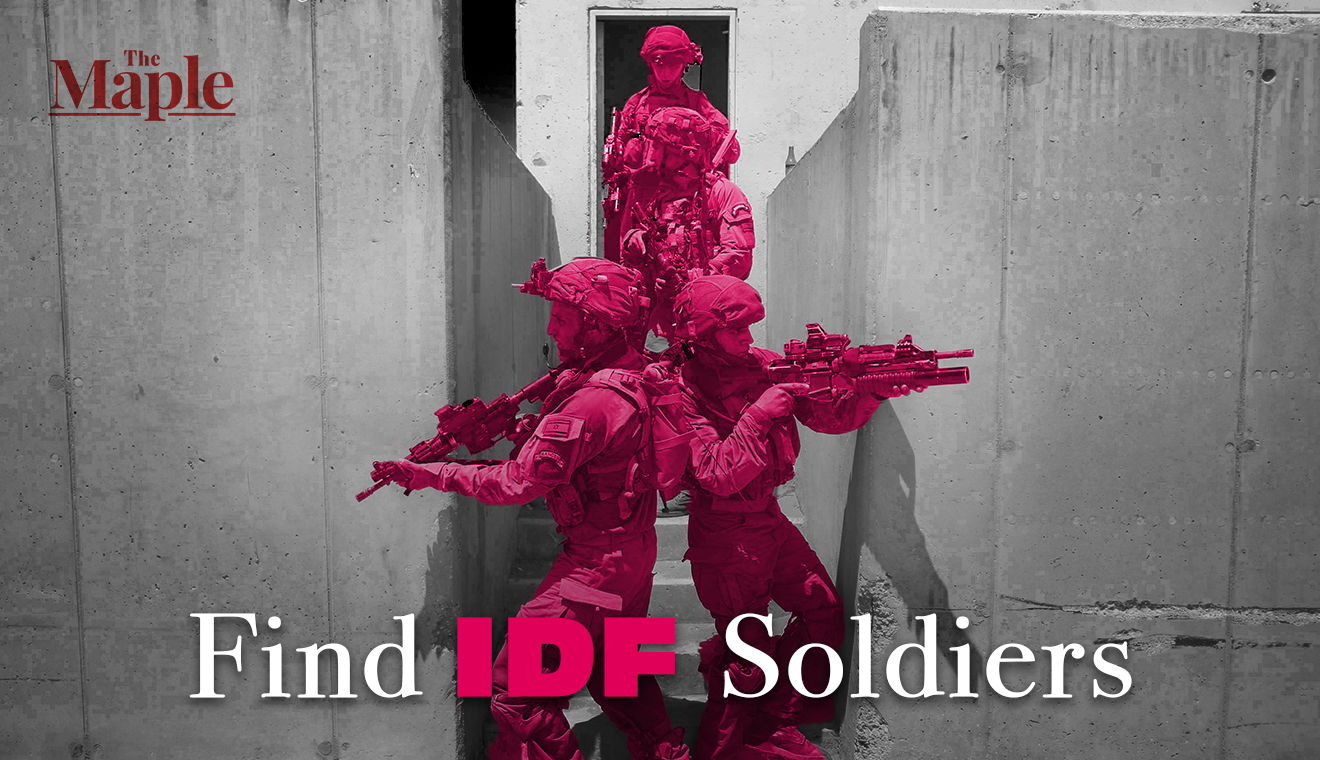
In order for someone to be included in the database, three criteria needed to be met: 1) being Canadian; 2) having served in the Israeli military; 3) having this service already be public.
Every single person on the list thus far is at least partially Jewish, and I haven’t refrained from pointing this out where relevant, including an analysis article presenting my findings on what the typical Canadian Israeli military member looks like.
The fact that the list is entirely Jewish should not be a surprise to anyone. As I wrote on the site: “Jews are the only ones able to immigrate to Israel as citizens due solely to their ethnoreligious background. That accounts for all of the soldiers who were born in Canada and immigrated to Israel later on — they could only do so in the way they did because they’re Jewish. As per the few soldiers in the project who were born and raised in Israel and moved to Canada later, all of them happened to be Jewish. This isn’t a surprise given the demographic makeup of Israel, and the fact that only Jews (74 per cent of the population as of 2023), Druze (just under 2 per cent of the population) and Circassians (0.05 per cent of the population as of 2024) are required to serve in its military.”
As I noted in the analysis article accompanying the database, the average Israeli military member from Canada is a white, Jewish man, born and raised in Canada, who grew up in the Greater Toronto Area in a wealthy neighbourhood, attended private Jewish schools for elementary and/or high school (costing as much as $24,000 per year), had white-collar professionals as parents, and chose to become a lone soldier. This is generally an incredibly privileged group of people willingly deciding to join the Israeli military.
And yet, despite all of this, much of the criticism the project received in mainstream media and elsewhere revolved around the false claim that I was somehow reviving Nazi-era tactics against Jews.
For example, a February National Post article contained a quote from one of the military members saying, “I think there’s a pretty dark historical precedent for making lists of Jews. That’s what it immediately reminded me of, a database of Jews.”
A March article from The Canadian Jewish News (CJN), meanwhile, contained multiple quotes to this effect. Another one of the Israeli military members, speaking on the project, said, “It was literally a list of Jews. That’s all it was. Good for you, you put a list of Jews together. That’s what you did. Like the SS.” Later, CJN stated the member said there was “never a good reason to make a list of Jews,” and then quoted them saying, “There’s a very dark history with that. People think it’s only the Holocaust—it’s not only the Holocaust…It was during the Spanish Inquisition, it was any time there was a need to round up Jews, lists were made. So Jews and lists—not a good thing.”
The article also quoted a professor of journalism at Toronto Metropolitan University and a former senior CBC News producer who said the project is “ethical, if abhorrent,” adding, “It’s ethical because it’s deemed to be in the public interest in some quarters. But it’s abhorrent because we’ve seen where lists of Jews have led in the past.”
There are many more examples of this sort of framing being used when discussing the project in international media, which I have compiled. They include headlines such as, “There’s a New ‘Jew List’ in Canada,” “Repackaging of Nazi-era tactics in a modern context” and “‘We Know What Jew Lists Mean’: Canadian Database of IDF Soldiers Sparks Alarm in Jewish Community.”
This whole saga is an incredibly straightforward example of Jewish exceptionalism. People cynically or genuinely alleged that a journalist creating a database of mostly privileged people on the basis of their participation in the Israeli military for journalistic purposes was in any way comparable to the Nazis compiling information on a systemically oppressed group based solely on their ethnoreligious identity with the intent to harm them.
The fact that this allegation has been taken seriously instead of being mocked is only possible thanks to the widespread belief in Jewish exceptionalism among Canada’s media class.
There are various reasons why writers may believe in Jewish exceptionalism and cling on to it in their writing.
A group of former Jewish-school students I spoke with earlier this year recounted being “brainwashed” with the idea of Jewish exceptionalism throughout their time in the institutions.
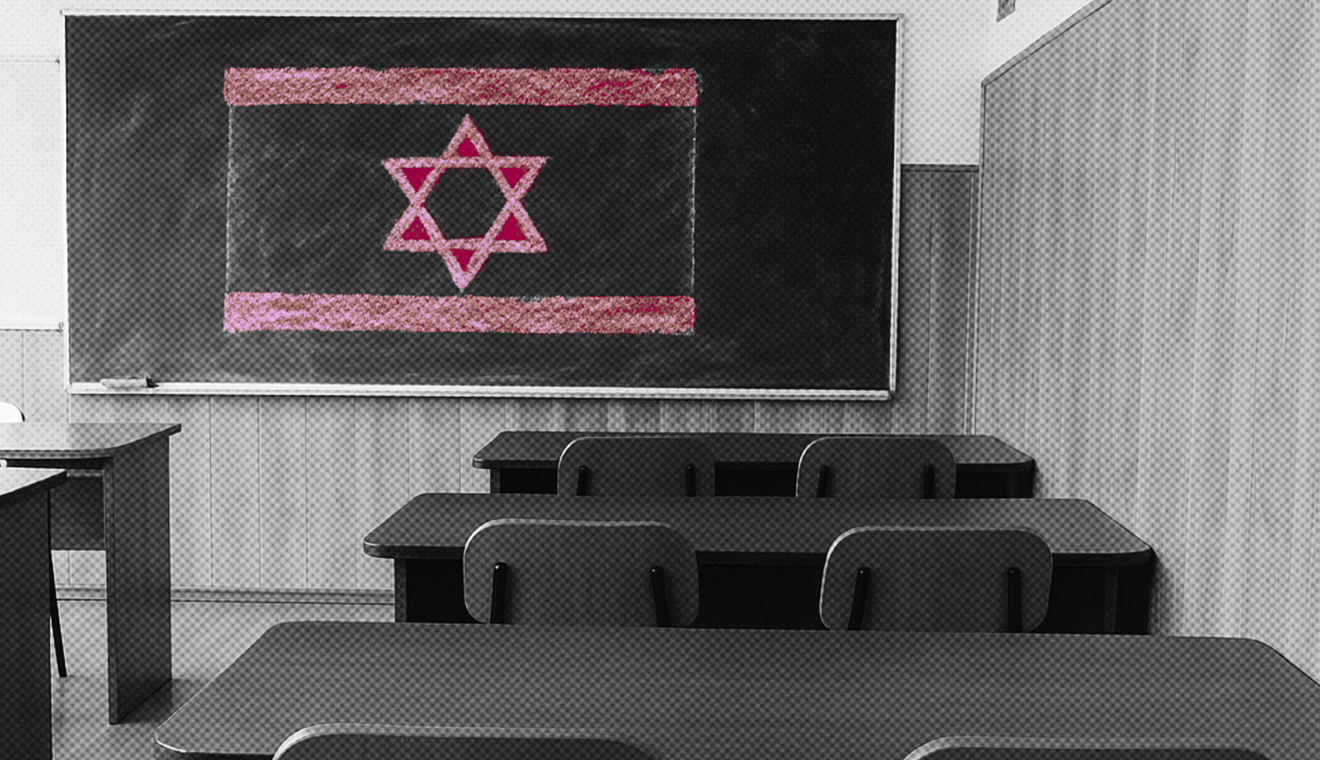
For some, Israel’s actions may have finally become too abhorrent to attempt to defend with any sort of logic or facts, and so a reliance on a non-material analysis that doesn’t need any correspondence with the real world can be useful.
Some non-Jewish commentators claim to be wracked with a sense of guilt for a time when systemic antisemitism did actually exist, and operate accordingly.
Others may be concerned about the personal consequences of stepping outside the Jewish exceptionalist framework, which applies to a much broader section of the political spectrum than many would like to admit.
Regardless of the reason, the effect of Jewish exceptionalism is to strengthen Zionist arguments and weaken the pro-Palestine movement by getting it to treat Israel’s genocide of Palestinians and alleged antisemitism as if they’re equally dangerous and urgent problems.
They aren’t. The paranoid spectre of antisemitism is being cynically weaponized to help allow the genocide to continue unabated, and it’s doing the people of Gaza a disservice to pretend otherwise.


